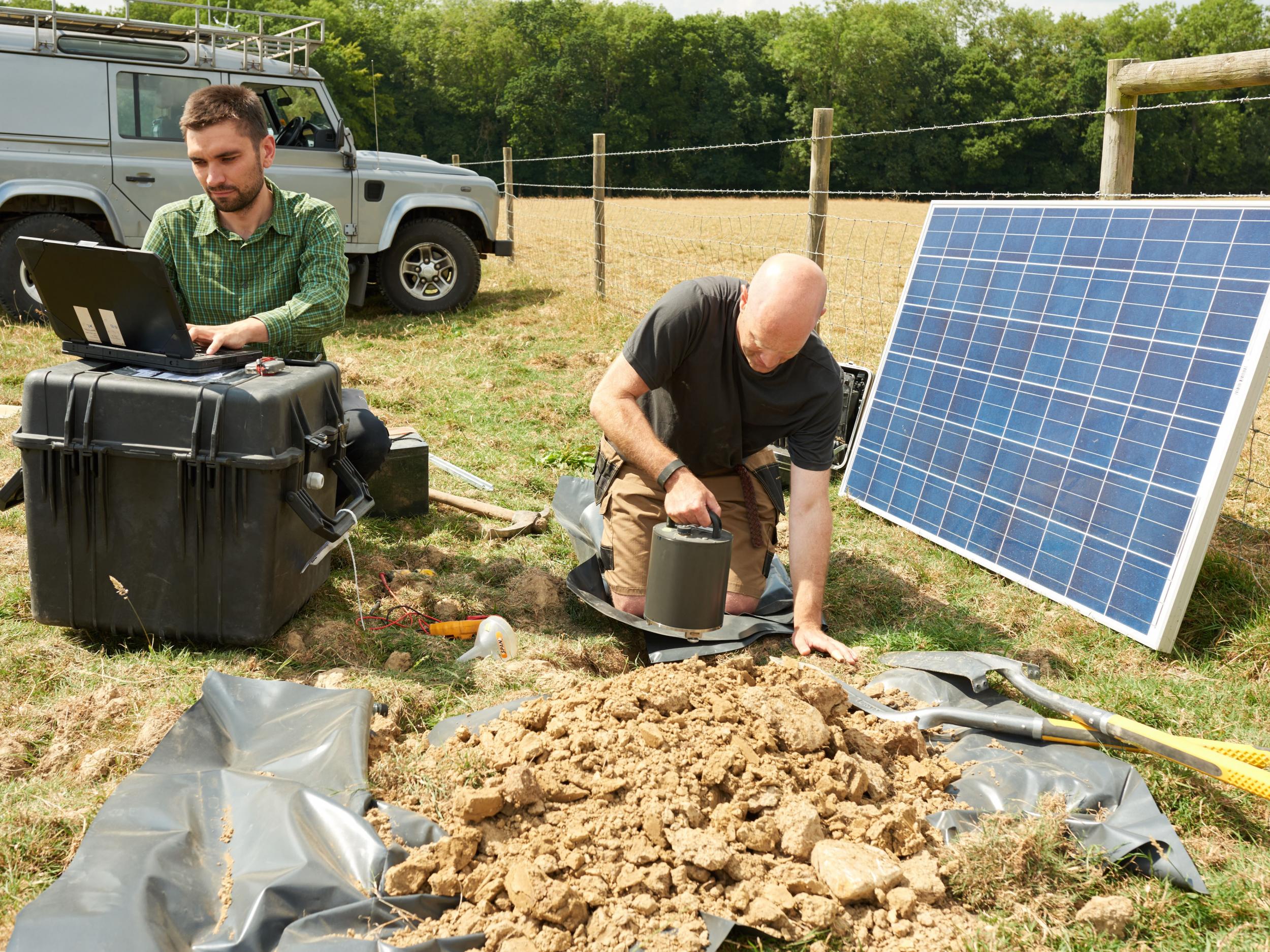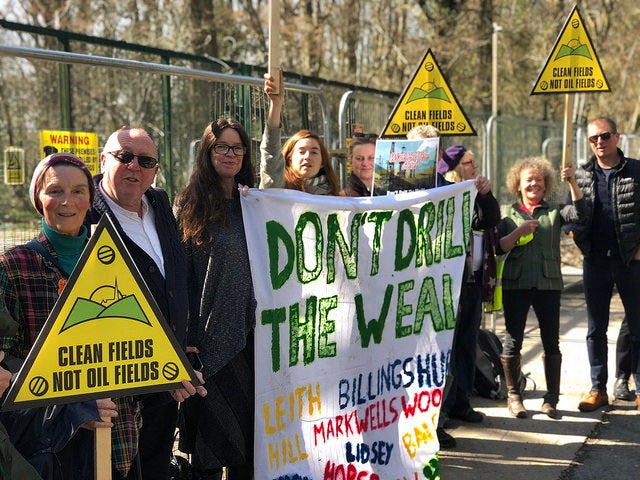Surrey earthquake mystery: Monitors installed near fossil fuel drilling sites amid ‘extreme concern’ from locals
Tensions are high between oil companies and local people concerned drilling is cause of recent 'swarm' of earthquakes

Around midday on 1 April, the calm of an Easter Sunday in leafy Surrey was shattered when locals began reporting explosions. Houses shook and windows rattled as the county experienced its first earthquake in at least 50 years.
Initially written off as a freak occurrence, the magnitude 2.7 tremors were the first of many. Seven earthquakes have been recorded in the region in the past four months, and experts still have no idea what is behind them.
As seismologists scratch their heads, this “swarm” of earthquakes has flared tensions between oil companies intent on drilling the countryside and locals concerned the activity is making the very land they live on unstable.
Surrey residents were quick to make the link between the earthquake epicentres and the close proximity of oil drilling operations.
In the months that have followed, local politicians have joined with activist groups to express their “extreme concern” about a potential link between drilling and the region’s newfound seismic activity.
Keith Taylor, Green MEP for the South East, has called for a moratorium on any fossil fuel extraction until scientists can demonstrate local drillers are not to blame. He says the worries of local people are completely understandable.
“I think anyone would be concerned,” says Mr Taylor.
“Extraction of unconventional energy has caused tremors in other places, including Blackpool, so it would be rather reckless of us to say ‘go on, carry on’.”
But as far as scientists are concerned, the jury is out. While they suspect there is nothing suspicious about the earthquakes striking the southeast, there is also not enough evidence to conclude whether they are natural or man-made.

To get to the bottom of this geological mystery, the British Geological Survey (BGS) has installed new earthquake monitors to pinpoint the precise origin of the tremors and settle the debate.
“We hope to gain a better understanding of this scientific phenomena through the installation of additional stations,” said a BGS spokesperson.
“We are unable to say categorically if these earthquakes are related to hydrocarbon exploration or production, mainly because of the uncertainties in our estimates of the earthquake epicentres and particularly depths.”
The problem, they say, is that while reports have described the earthquakes as originating a few miles away from drilling sites like Horse Hill, current detectors are around 30 miles away.
In reality, the inaccuracy of these estimates means the earthquakes could be a few miles further away, or a few miles closer. With the new detectors, they will be able to pinpoint the earthquake origins to within a few hundred metres.
Opponents of the drilling operation are urging caution.
James Hill, a Dorking resident and member of activist group A Voice For Leith Hill, says they are not claiming conclusively “one thing or the other”.
“All we are saying is, because we don’t know, we think the sensible thing to do is to have these faults surveyed,” he says.
But the oil and gas drillers are adamant that not only have their operations been risk-free, there is nothing “unconventional” about them.
Fracking was temporarily banned in 2011 after it was blamed for earthquakes that struck Lancashire, but the drillers say they are not using any of these risky techniques.

“We do not frack. The Kimmeridge Limestone rocks we target are naturally fractured by Mother Nature,” says Stephen Sanderson, CEO of UK Oil & Gas PLC, which is running an operation at Horse Hill in Horley.
“We do not want to frack, and we do not need to frack.”
Dr Stephen Hicks, a seismologist at the University of Southampton, has been following the case closely and previously called for further investigation into the earthquakes’ provenance. He agreed that current operations should be risk-free but said there was still a need to be wary.
“Normally, as far as scientific studies show, there is no evidence that kind of extraction would produce earthquakes, but it really is dependent on the geology you have got in the region as well.
“It’s really hard to rule in or rule out anything at this stage.
For now, BGS scientists must wait until the next earthquake strikes to work out if both the location and the depth of the tremors match up with activity at the drilling sites.
Mr Sanderson says, despite an announcement at the end of June that exploratory tests of their oil well had commenced, there has been no such activity since 2016. He says they are preparing to conduct further tests, and there has been no seismicity recorded following their exploration in 2014 and 2016.
Whatever the conclusion of BGS’s new detectors, with companies seeking new sources of fossil fuels on their doorstep, for the campaigners this fight is about more than just earthquakes.
“Everybody and their mother understand that carbon dioxide emissions is one of the biggest sources in the burning of fossil fuels,” says Mr Taylor.
“That’s the bigger picture stuff – and then the small picture… the people who live there are worried because of the more immediate impacts, whether that’s increased truck movement or increased air and noise pollution.”
Join our commenting forum
Join thought-provoking conversations, follow other Independent readers and see their replies
Comments
Bookmark popover
Removed from bookmarks